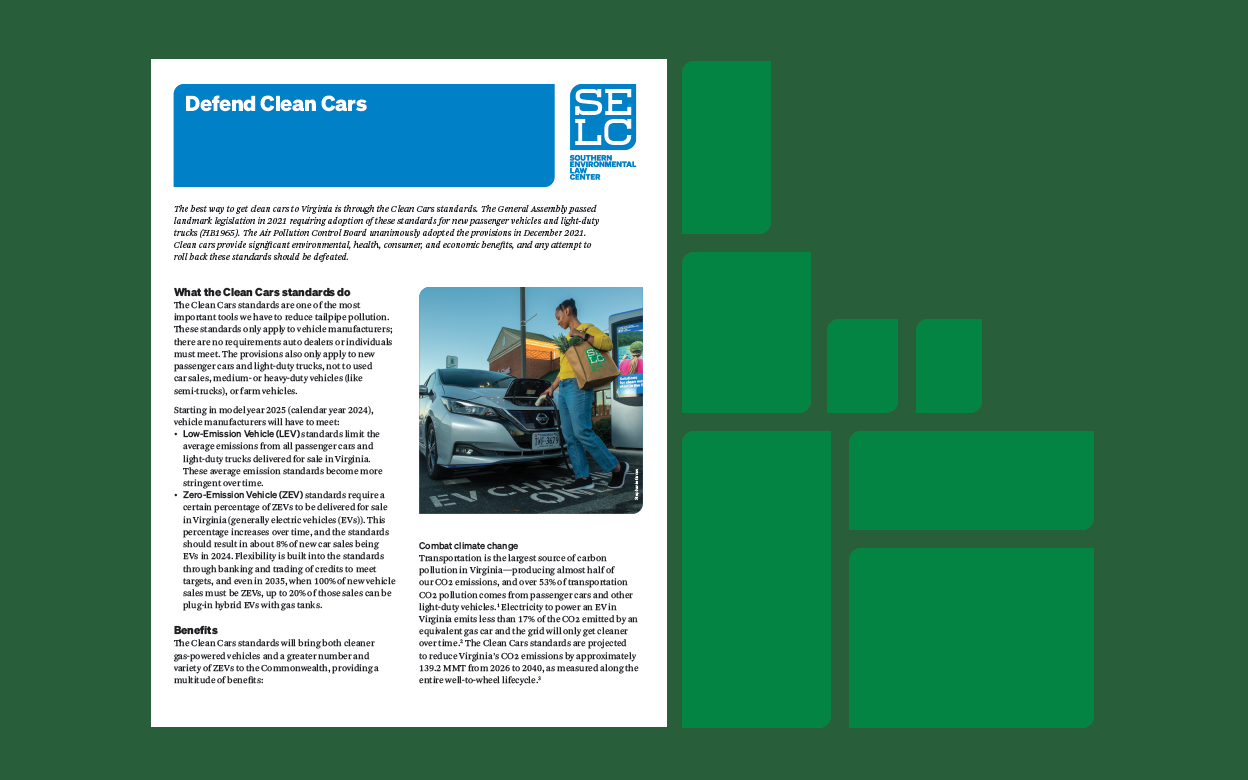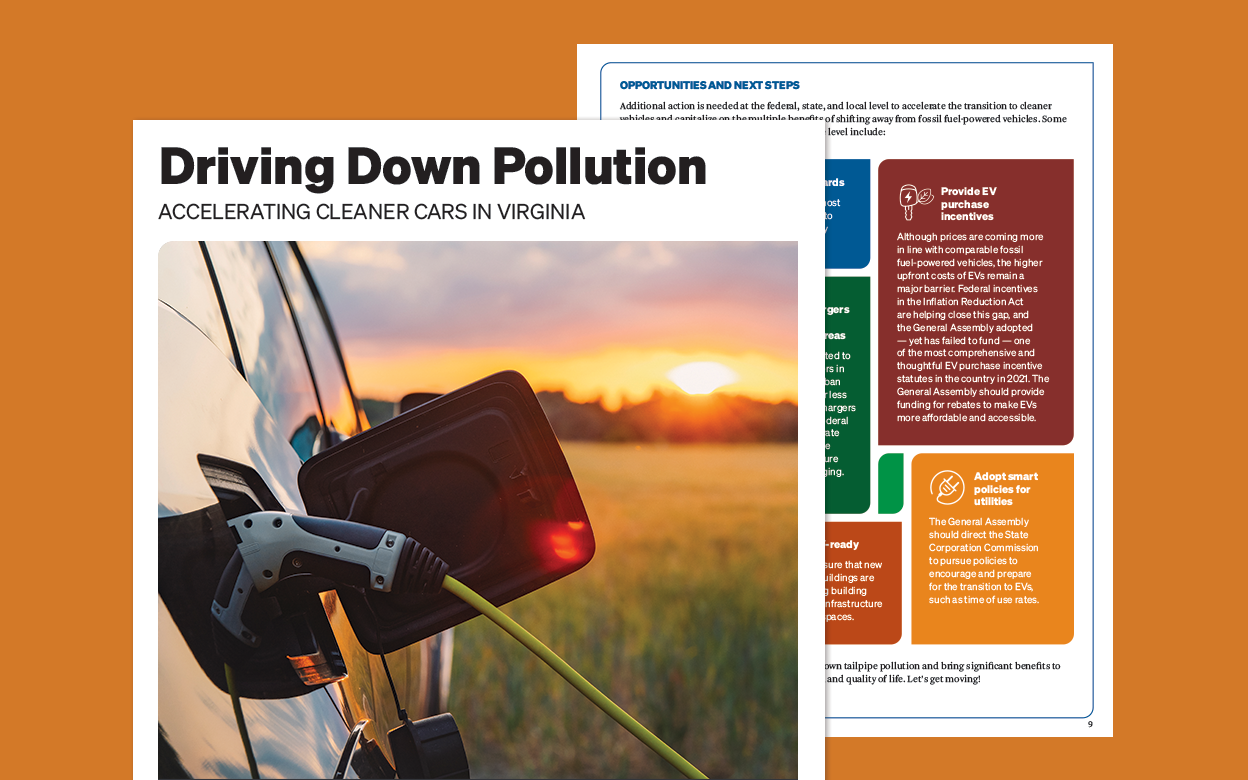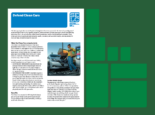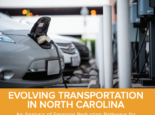Accelerating electric vehicles
Transportation is our biggest driver of climate change—and electric vehicles are a key solution
Transportation is the largest source of climate change driving pollution nationwide. Electrifying vehicles of all sizes is an important part of fighting climate change and the adverse impact highways continue to have on communities of color and those with lower wealth.
Electric cars, trucks, buses, and trains produce zero tailpipe emissions, significantly reducing carbon and other harmful air pollutants.
EVs also offer lower fuel and maintenance costs, and they are becoming a viable option for more uses and more people due to rapid improvements in the distance they can drive on a charge, more widespread availability, federal purchase incentives, expanding charging networks, and faster chargers.

Defend Clean Cars
Solving our climate pollution problems will take more than just electric vehicles, but we certainly can’t do it without them. They are one of the tools we have in this fight; with wise investments in infrastructure, they are a powerful one.
CARROLL COURTENAY, SELC STAFF ATTORNEY
We are working at the federal, state, and local levels to accelerate the adoption of EVs and other clean vehicle technologies through stronger standards, policies, and incentives, and southern states are helping to lead the way. In early 2021, Virginia took bold action by adopting Clean Car standards that will ensure more fuel-efficient vehicles are sold in the state, and that EVs are readily available to Virginia car buyers. Now with a new governor in Virginia, we are fighting to defend those Clean Car standards and make sure they are implemented.
In 2022, North Carolina announced it would move forward with a wide-ranging initiative to cut pollution from medium and heavy-duty trucks and the Governor issued an executive order directing the development of an Advanced Clean Trucks program that would bring more electric trucks to the state. While medium and heavy-duty vehicles are less than 7% of the vehicles on the road in North Carolina, they are responsible for a disproportionate share of carbon and other hazardous air pollution in the state. Pollution from diesel trucks disproportionately harms communities of color and other fenceline communities.
We are also focusing on how states in the South spend funding from the federal Infrastructure Act to build out the EV charging network, as well as encouraging localities to pursue new federal funding that is available to purchase electric transit and school buses. We are also working in public utilities commissions across our region to make sure utilities plan ahead to facilitate the transition to electric vehicles while lowering ratepayer costs.
At the same time, we want to ensure that the benefits of clean vehicle technologies are shared by all. To accomplish this, we advocate for incentives to make EVs affordable for lower-income buyers, public funding to purchase electric transit and school buses in overburdened communities, and increased and equitable access to EV charging facilities to lower barriers for those who cannot charge at home.

Driving Down Pollution
Additional Resources

Defend Clean Cars


